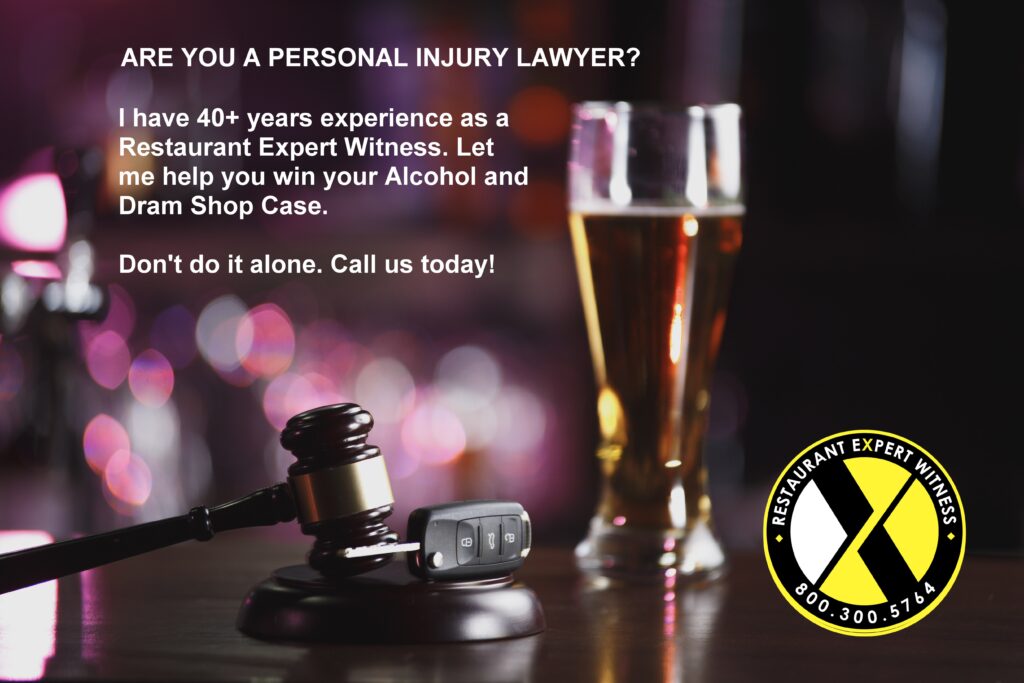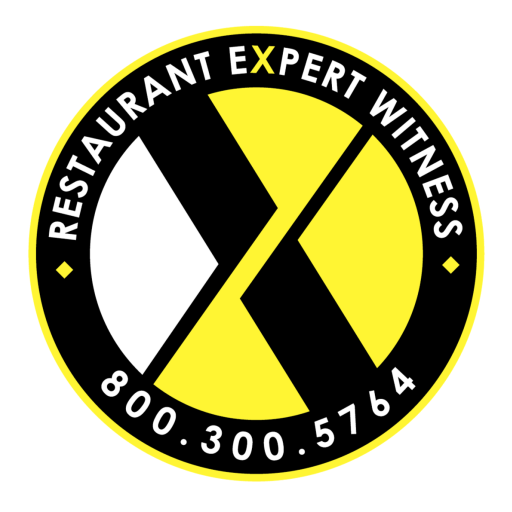Dram shop laws for restaurants and bars are among the most important laws governing alcohol consumption in the United States. These laws hold businesses liable for serving or selling alcohol to a minor or an intoxicated person who later causes death, injury, or property damage to another person. These laws are essential for victims of alcohol-related accidents, as they can hold restaurants and bars accountable for their negligence.
What is dram shop law?
The term “dram shop” comes from the 18th-century British way of measuring alcohol, called “dram”, and it measures 3/4 of a teaspoon, typically less than a shot of liquor. In the United States, dram shop laws are statutes or regulations that hold a bar, restaurant, or other business selling or serving alcoholic beverages. It’s calling them out to be legally responsible for injuries caused by an intoxicated person.
Understanding dram shop law
The laws concerning alcohol service can be complicated, and not understanding them could put a restaurant’s or bar’s future at risk. Many establishments don’t realize that most states with dram shop law regulations are liable if a visibly intoxicated individual is served alcohol or if a minor is served alcoholic beverages. Each state has its own particular set of rules!
Under the Dram shop law, restaurants and bars can be held liable for any intoxication actions of their patrons. These actions could include any property damage, injuries, or deaths caused by an intoxicated customer. Businesses and their employees can also be held liable for failure to serve alcohol responsibly. For instance, if a bartender knowingly serves an underage individual or continues to serve a visibly intoxicated customer and causes an accident, they could be held responsible for any resulting injuries. To avoid legal issues, it’s essential for restaurants and bars to train their staff to recognize signs of intoxication and cut off anyone who appears to be inebriated. Liability insurance is also a must for any business that serves alcohol.
These laws can be strict in some states and may hold a business or its employees liable for any of the following actions:
- Selling or serving alcohol to a minor.
- Serving alcohol to an intoxicated person, regardless of age.
- Failing to exercise reasonable care when serving alcohol.
- Failing to train staff on alcohol safety and responsibility properly.
Federal OSHA guidelines play a role in alcohol liability cases in every state nationwide. Even the states that do not have dram shop laws still have industry-standard guidelines that they must follow, as do those with dram shop laws. Industry standards, OSHA, and other safety, health, and security standards, safety rules, guidelines, and best practices impact every state, whether they have dram shop laws or not, and will play a role in the outcome of this case.
What states have dram shop laws?
Did you know that dram shop laws are enacted at the state level, not the federal level? Also, each state decides whether or not to enforce dram shop laws, and some have state-specific quirks. Even in states without dram shop laws, businesses are not immune to the risks of serving alcohol. Any person hurt by an intoxicated customer can make a legal case against the business – and though judges tend to rule favorably, court costs and other fees still have to be paid. Businesses need to have liquor liability insurance for protection!
The following states have some form of dram shop law: Alabama, Alaska, Arizona, Arkansas, California, Colorado, Connecticut, District of Columbia, Florida, Georgia, Hawaii, Idaho, Illinois, Indiana, Iowa, Kansas, Kentucky, Louisiana, Maine, Maryland, Massachusetts, Michigan, Minnesota, Mississippi, Missouri, Montana, Nebraska, Nevada, New Hampshire, New Jersey, New Mexico, New York, North Carolina, North Dakota, Ohio, Oklahoma, Oregon, Pennsylvania, Rhode Island, South Carolina, South Dakota, Tennessee, Texas, Utah, Vermont, Virginia, Washington, West Virginia, Wisconsin, and Wyoming.
What states do not have dram shop laws?
Knowing which states do not have dram shop laws is essential to understand the legal implications of serving alcohol. The following eight states currently do not have dram shop laws: Delaware, Kansas, Louisiana, Maryland, Nebraska, Nevada, South Dakota, and Virginia.
The consequences of violating dram shop law
Violating dram shop laws can have severe financial and legal consequences. Businesses in violation may be fined or even face license suspension or revocation. In some cases, the owner or manager of a business can also be held personally liable for any damages caused by an intoxicated customer. In addition to the financial and legal costs, violating dram shop law can damage a business’s reputation and have long-term implications for future business.
As a dram shop expert witness, I can help personal injury lawyers with their clients. I can help them be aware of the laws in each state and whether a restaurant or bar violated the dram shop law in their state. I can also help determine whether or not reasonable and customary restaurant industry standards and measures were taken on behalf of the organization, owner, server, etc. For example, the management and establishment can be held liable even if the bartender or server lacks knowledge of intoxication, underage drinking, and how they should have handled a situation.
Visible intoxication is the key to dram shop cases. Most states have a visible intoxication guideline that says that if the consumer is showing signs of intoxication, the bartender, servers, and managers of the alcohol establishment are not allowed to serve them more alcohol. It’s against the law to do so, and if they harm themselves or someone else, the restaurant or bar will be held responsible and liable. So will the bartender, server, and manager working for the establishment. The consequences for violating these laws can be severe, including hefty fines, suspension of licenses, loss of serving privileges, loss of employment, and even jail time for owners and management, not to mention huge 6, 7, and even 8-figure lawsuits or even criminal penalties.
Effective alcohol service training is essential for restaurants and bars that want to ensure their patrons have the best possible experience. While signs of intoxication like stumbling, falling asleep at the bar, or slurred speech may be distinct indicators, management and employees must also know how to identify subtler cues such as changes in behavior, eyesight, or attitude from when customers first enter their establishment. By paying attention early on, they can better prevent incidents before they happen.
Having an expert witness is a crucial step for any personal injury lawyer taking on a case of this nature because not only are there states that have dram shop laws, but there are also those that do not. To complex things further, the laws can differ from state to state, and lawyers need to understand the laws in each state and how they can be applied to the facts of their case.
I can provide valuable information about the legal implications of serving alcohol and offer insight into how to handle unique situations. I can explain the duties of a server, bartender, or other staff member when serving alcohol and how those duties were violated in the present case. I can also guide how a server or bartender should handle intoxicated guests and other situations involving alcohol and how to check identification properly.
No one should suffer the consequences of someone’s negligence. Let me help you win your alcohol and dram shop case. As an expert witness, I can give you the valuable information and insight you need to represent your client best. Contact me today, and let’s get started. Call (800)300-5764 now!

